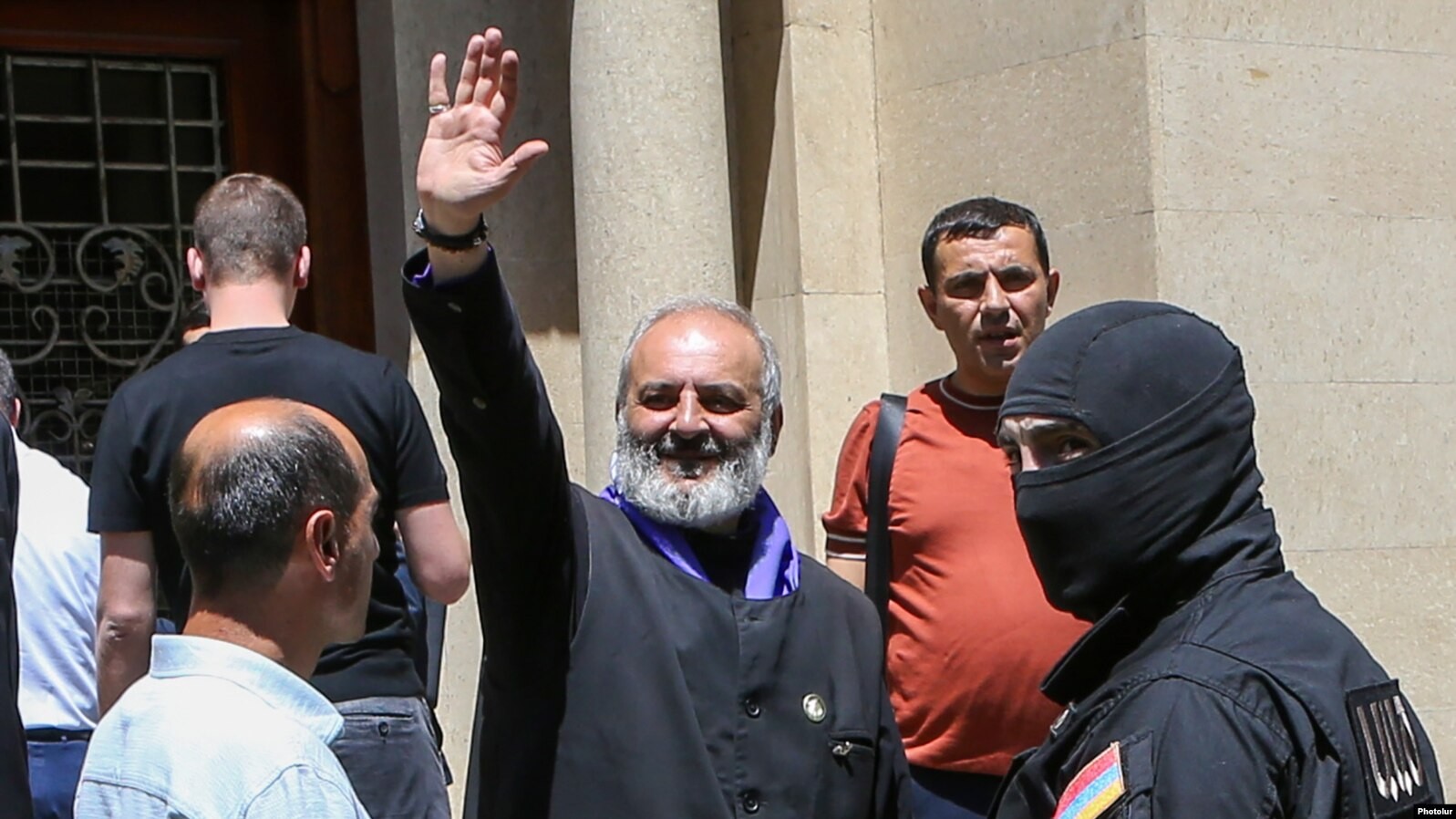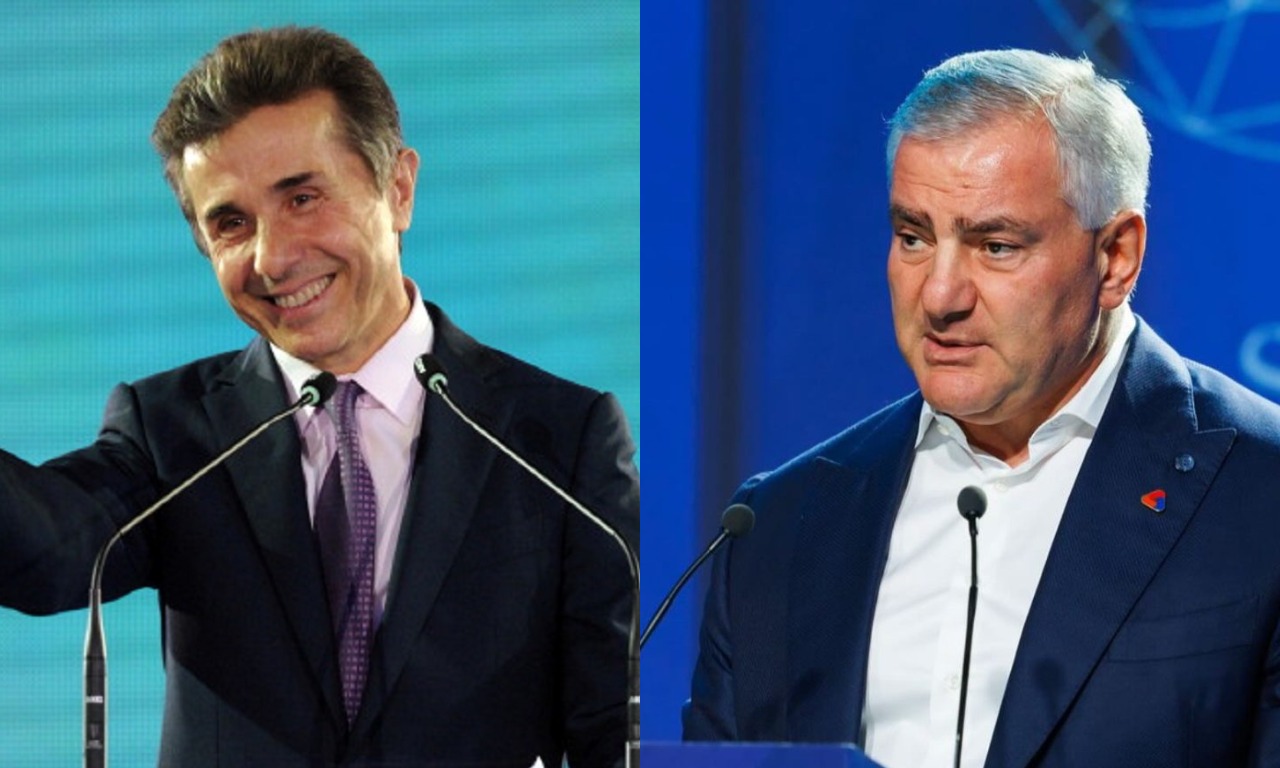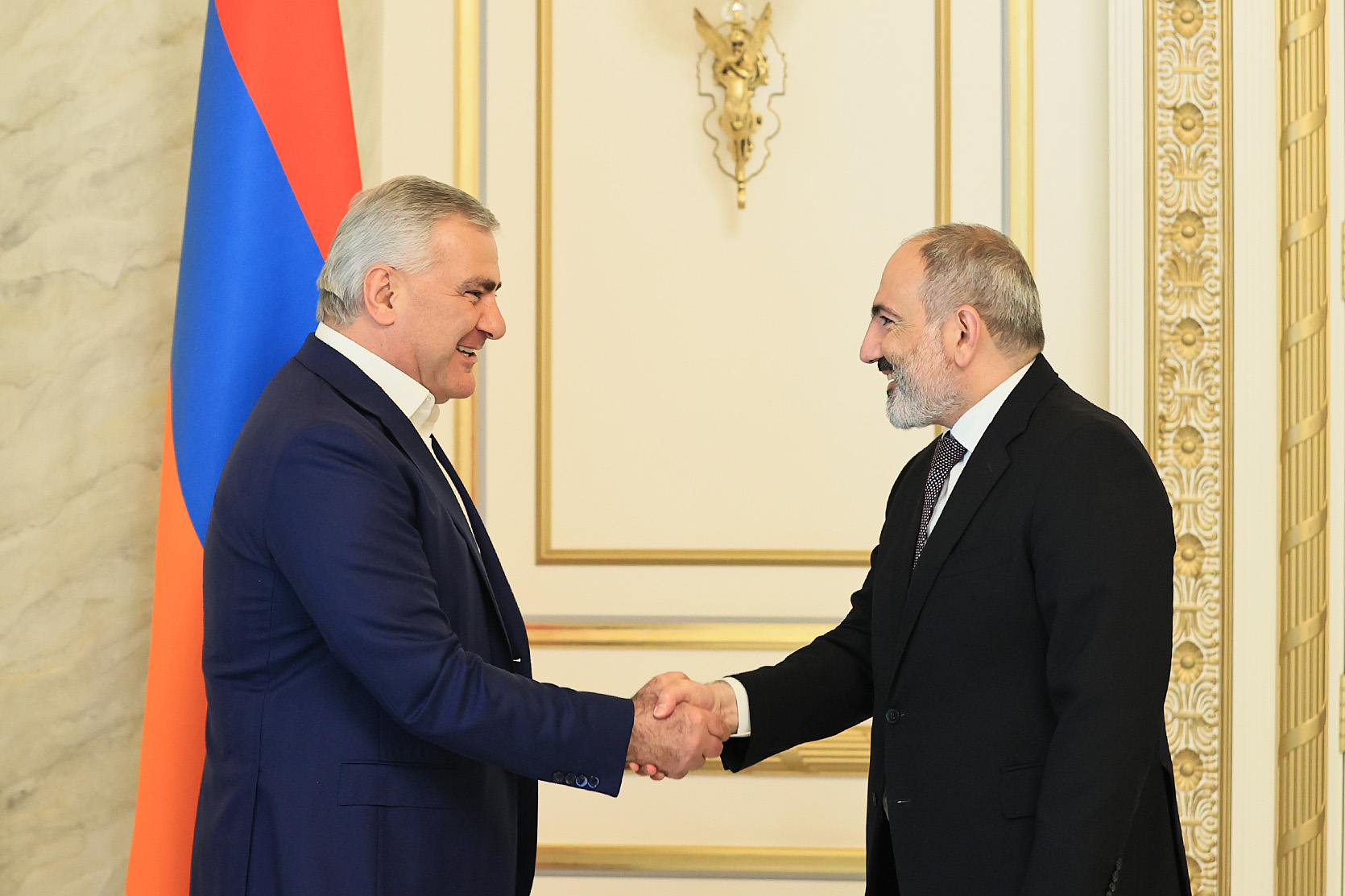'Russian trace' suspected in Armenian clergy: Another priest faces criminal charges
Criminal charges against archbishop Adjapahyan
Armenia has launched yet another criminal case against a high-ranking clergyman — Archbishop Mikael Adjapahyan, head of the Shirak Diocese of the Armenian Apostolic Church. The development comes amid the foiling of an alleged coup attempt in Armenia and the subsequent arrest of Archbishop Bagrat Galstanyan, head of the Tavush Diocese.
The case against Adjapahyan concerns “public calls for the seizure of power and the violent overthrow of the constitutional order.” Last week, Russian-Armenian businessman Samvel Karapetyan was arrested under the same charge.
Archbishop Adjapahyan has dismissed the charges as fabricated and unlawful, yet he stands by his statements. “I will continue in the same spirit,” he declared.
For several hours, law enforcement officers attempted to detain the head of the Shirak Diocese, but were blocked by supporters gathered at the residence of the Catholicos of All Armenians in the Mother See of Holy Etchmiadzin. The officers ultimately left without making an arrest.
“The National Security Service and the police of the Republic of Armenia, guided by security concerns and seeking to avoid a deliberate escalation, decided to leave the grounds of the Mother See,” a statement from the NSS explained.
Meanwhile, the Catholicosate stated that the clergyman had not been properly notified of the requirement to appear before the Investigative Committee. They stressed that he was not attempting to evade the summons and attributed his absence to the crowd at the residence, which had prevented him from following the officers to their vehicle.
Some time later, Archbishop Adjapahyan began walking to Yerevan on foot, accompanied along the way by a group of loyal parishioners. At the time of publication, they had not yet reached their destination.
Political analyst Ruben Mehrabyan described the events as theatrical. “They are trying to turn the Mother See of Holy Etchmiadzin into a shield to protect themselves from legitimate prosecution,” he told JAMnews.
- Lavrov in Yerevan: Traditional diplomacy, untraditional atmosphere
- Pashinyan to visit Moscow on 9 May. Analyst urges tough talks with Russia
- Study finds Armenia’s reliance on Russia now national security threat
Call for violent overthrow of power
According to lawyer Ara Zograbyan, the criminal case was initiated on the basis of an interview the clergyman gave on 3 February 2024.
In the interview, the archbishop spoke of the need for a military coup to overthrow the government. He went further, stating that he had discussed the matter with former presidents Serzh Sargsyan and Robert Kocharyan.
“I said, Mr President Kocharyan, you were President of Armenia for ten years, and of Karabakh for just as long. Is there really not a single general — in the army, the police, or the NSS — who supports you, shares your ideology, and would stand with you to carry out a coup?” he said during the interview.
Public debate has since turned to the question of why the investigation is only being launched a year and a half after this statement.
Law enforcement searched for Adjapahyan in Gyumri, found him in Etchmiadzin
Law enforcement officers initially went to detain the archbishop in Gyumri, where the Shirak Diocese is based. A search was conducted on site, and some materials were confiscated.
However, Adjapahyan was not there. It was later established that the head of the diocese had travelled to the Mother See of Holy Etchmiadzin. The clergy claimed he had come from Gyumri to hold a meeting.
Representatives of Armenia’s ruling party believe the archbishop was deliberately brought to the country’s spiritual centre to dramatise the situation. They say this was done to provoke public reaction and encourage crowds to block his detention. “Help, the security forces have come to the Mother See,” Vice Speaker of Parliament Ruben Rubinyan said, describing the alleged move.
At midday, officers from the National Security Service arrived in Etchmiadzin. Tensions rose as soon as they appeared near the Patriarchate. A scuffle broke out between members of the clergy and security personnel.
Shortly after, the head of the Shirak Diocese appeared with the Catholicos of All Armenians and said he would go with the NSS officers.
“What is happening is absolutely unlawful. But I have never gone into hiding and I’m not going to now. I don’t want to give the impression that I’m hiding behind my brothers’ backs,” he said.
He added that he posed no threat to the country. “The real threat sits in the government building,” he said, referring to Prime Minister Nikol Pashinyan.
Supporters prevented Adjapahyan from travelling to Investigative Committee, escorted him on foot instead
Although the archbishop agreed to travel to Yerevan with law enforcement, a scuffle broke out at the scene. Worshippers in Etchmiadzin blocked the cathedral’s entrances and exits, preventing security forces from taking the clergyman.
Adjapahyan’s attempts to enter the NSS vehicle were unsuccessful
Clergy members told journalists that Adjapahyan intended to report to the authorities voluntarily, but “proud and faithful citizens” prevented him.
“No one is trying to evade an uncommitted crime,” said Archbishop Nathan Hovhannisya
Expert commentary
Political analyst Ruben Mehrabyan believes this is the right moment to respond to Adjapahyan’s statements — not a year and a half later. He sees it as no coincidence that the criminal case was launched alongside the exposure of a coup plot in Armenia.
“As of February last year, one could have dismissed it as the irresponsible talk of an individual. But now we have material evidence showing that these statements were not merely words thrown into the air, but part of an organised network aiming to bring them to life.”
The analyst asserts that the actions of the Armenian clergy show not only Russian involvement but also direct oversight and coordination:
“This is evidenced by the reaction of the Russian Orthodox Church to the arrest of Russian businessman Samvel Karapetyan. It’s also shown by the fact that Karapetyan led the creation of the ‘ArBat’ battalion, and the Catholicos’s brother gave his blessing to this ‘ArBat’, and so on.”
ArBat is a Russian special forces battalion made up of ethnic Armenians, mostly Russian citizens. Members of the group that allegedly planned to stage a coup in Armenia were trained there. Last year, Armenia’s Investigative Committee announced the dismantling of the criminal group.
Returning to the case against Archbishop Mikael Adjapahyan, Mehrabyan stresses:
“The state must see it through and give a criminal-legal assessment of violent acts, coup attempts, and all statements or appeals that call into question Armenia’s independence, sovereignty, and territorial integrity. Everyone is equal before the law, regardless of rank or religious office. That is the essence of the rule of law. And the state is obliged to defend and uphold that principle.”
He argues that, in parallel with law enforcement efforts, the authorities must also ensure “strategic communication with society.” According to him, this is the only effective way to counter hybrid attacks on the country.
The analyst notes that Armenia is not the only state targeted by such tactics from Russia. He cites Moldova as another example:
“Strikingly, Russia uses the same tools, the same crude methods, only adjusting them to local specifics. We see the same in Moldova: Moldovan oligarchs, clergy, mercenaries, dirty money.”






















